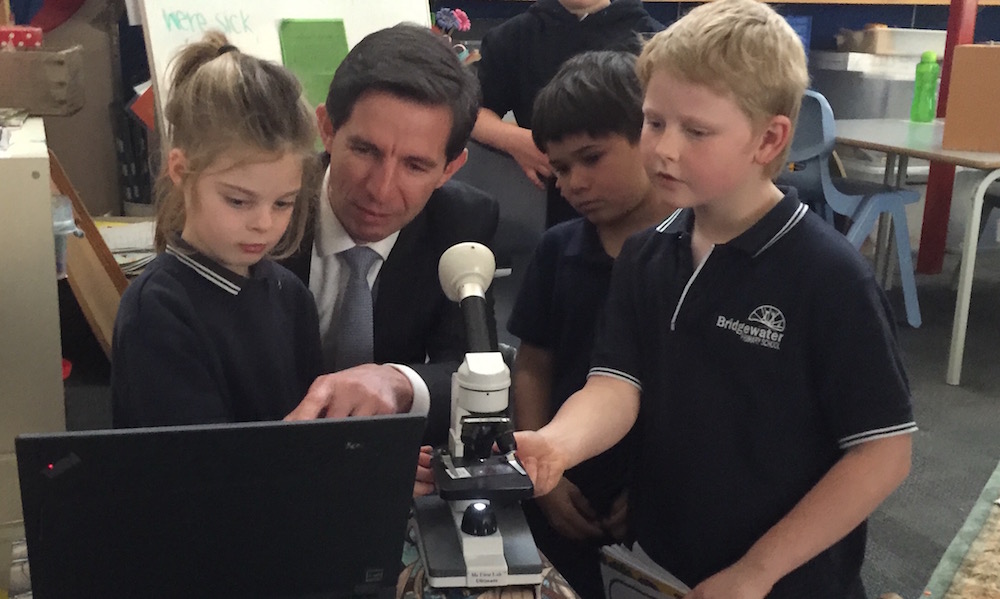Artificial intelligence: The next education revolution

In the near future, students will learn at their own pace on computer programs that adapt to suit the abilities of each child.
When Facebook suggests a Friend or Facebook page you might be interested in, that is an example of artificial intelligence.

When Google personalises your search inquiry to provide intuitive results, that too is an example of artificial intelligence.
Artificial intelligence, or machine learning, is so much a part of daily life that most of us take for granted that our devices can prompt and offer suggestions based on our previous queries, posts and Likes.
In many industries and spheres – from medicine to the military – artificial intelligence is making even more dramatic appearances.
Self-driving cars, medical scans that can identify skin cancers and mail delivery drones are just some of the applications of AI or machine learning that are drawing international headlines.
But one important sector that could well benefit from AI but is lagging behind is education.
Artificial intelligence in education might conjure images of futuristic classrooms in which the teacher has been replaced by an all-knowing robot.
But the reality is more akin to the adaptive software driving those Facebook and Google prompts.
Experts believe that the future of education will be harnessing those aspects of AI to personalise lessons for individuals.
And this radical shift towards a computer-driven future is being touted as the next great revolution in education.
Personalised learning with AI
David Gonski has already planted the seed in Australia for scrapping the current “mass education” system is favour of one that offers “personalised learning” to each and every student.
The concept is favoured by teachers and has been supported in theory by the Australian Prime Minister Malcolm Turnbull.
Exactly how teachers could in the future be expected to teach to the strengths and weaknesses of every student in the class remains the subject of debate.
But artificial intelligence is emerging as one of the key tools by which schools may be able to offer every child a personalised education.
Education companies are already working on a range of adaptive learning programs designed to adjust to suit the abilities of students.
The software would be used on computers, phones, laptops or tablets and provide content and testing that goes beyond basic question-and-answer or multiple choice questioning.
As students navigate through learning modules set by the teacher, the program would adjust its content and questioning for each student based on their previous right and wrong responses.
The AI program would learn about each student, such as strengths and weaknesses and learning styles and use that information to tailor learning content for them.
The system could provide very specific feedback so that both the student and teacher knows where the child needs improvement.
Students could also learn at their own pace – so-called self-directed learning – progressing more rapidly or taking their time depending on their level of comprehension or ability.
Google product management director Jonathan Rochelle, or JR, says machine learning programs could make “personalised, self-directed learning achievable in the classroom”.
Jonathan was a keynote speaker at the EduTECH conference in Sydney in June where he spoke on the questions “What is artificial intelligence? What is machine learning? Why are they so important and topical right now?”
Jonathan described artificial intelligence as the “fourth industrial revolution” that could change the way students learned and teachers taught.
Mark Scott, the former head of the ABC who runs the NSW Department of Education, also describes the use of artificial intelligence in schools as nothing short of a “revolution”.
Mark Scott was another popular EduTECH speaker who addressed the subject of technology challenges in education.
He said one of the great challenges would be bringing technology innovations into every classroom, to every teacher in every school.
Mr Scott said tools such as AI would provide “important information about each child and about the best interventions for each child”.
“I get quite excited when I think about the tools that may be available to teachers in the future,” he told conference attendees.
In a radio interview with the ABC’s Science Program, he also said it was time to “change the way we teach, change the tools we use and change the operating environment of classrooms”.
“Technology is a vital exciting tool that great teachers are going to be able to use to revolutionise education in our schools in the years ahead,” he told the ABC.







